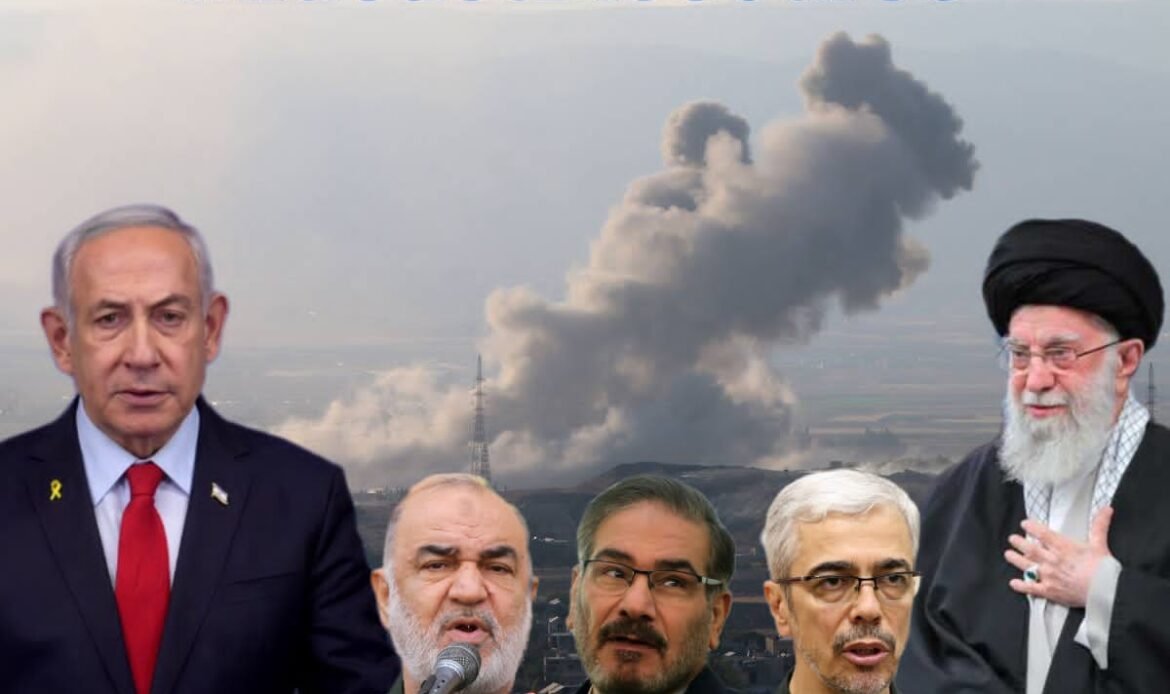Steven Sahiounie, journalist and political commentator
On Friday the 13th, as the Middle East slept on the first day of the region’s weekend, Israel launched a massive preemptive strike on Iranian territory. The secret operation, codenamed “Rising Lion”, targeted nuclear facilities, missile production sites, nuclear scientists and high-ranking military officials, marking the most significant escalation between the two nations in decades.
The Strike: Targets and Impact
According to Israeli military sources, over 200 aircraft participated in the operation, striking key Iranian infrastructure across multiple provinces. Notable targets included:
Natanz Nuclear Facility: Iran’s primary uranium enrichment site suffered heavy damage. The International Atomic Energy Agency (IAEA) confirmed no radiation leaks but acknowledged significant structural destruction.
Khondab and Khorramabad Sites: These strategically vital nuclear and missile development centers were also hit.
Tehran: Explosions rocked the capital, including near the headquarters of the Islamic Revolutionary Guard Corps (IRGC). Residential areas were targeted, leading to civilian casualties.
Iranian state media confirmed the deaths of several top officials, including IRGC Commander Hossein Salami, Chief of Staff Mohammad Bagheri, and nuclear scientists Fereydoun Abbasi-Davani and Mohammad Mehdi Tehranchi.
Mossad’s Covert Operations
Analysts recall that Israel carried out a military exercise several weeks ago concerning refueling while in-flight. The U.S. had evacuated troops and some personnel from areas in the Middle East ahead of the attack, signaling that while the U.S. might not have participated in the attack, Washington was well aware of Israeli’s plans.
Israeli security sources revealed that Mossad had carried out a series of covert operations inside Iran prior to the strikes. These operations focused on neutralizing Iran’s strategic missile systems and air defense capabilities. The campaign consisted of three phases:
First Phase: Mossad commando cells deployed precision-guided weapon systems near Iranian air defense sites, launching a simultaneous missile barrage during the Israeli attack.
Second Phase: Advanced offensive systems were planted on vehicles to destroy Iranian air defense systems threatening Israeli fighter jets.
Third Phase: A drone base was established deep inside Iran, with drones launched at surface-to-surface missile sites near Tehran.
Iran’s Response: Retaliation and Mobilization
In retaliation, Iran launched approximately 100 drones toward Israeli territory. Most were intercepted by Israeli defense systems, and the government briefly issued a nationwide alert before lifting it later that morning. Iran has vowed further retaliation, with Supreme Leader Ayatollah Khamenei warning Israel to “expect severe punishment.”
Global Reactions and Diplomatic Fallout
The international community responded with varying degrees of alarm. Despite the fact that Israel’s strike is against international law, and should be condemned, the UK Prime Minister only voiced his concern.
India expressed “deep concern” and urged both nations to avoid further escalation.
Saudi Arabia, Turkey, and China condemned Israel’s actions, calling for restraint and renewed diplomacy.
The United States, while denying involvement, confirmed that Israel acted unilaterally. Secretary of State Marco Rubio emphasized that U.S. forces in the region were on high alert.
Meanwhile, airspace across the Middle East was closed or restricted, with flights diverted and major airports in Israel and Iran suspending operations.
The Nuclear Context: Why Now?
The confrontation comes amid nuclear negotiations between Iran and the U.S., which had resumed earlier this year after a seven-year hiatus. The talks aimed to limit Iran’s uranium enrichment, which has reached 60% purity, dangerously close to weapons-grade.
Trump had sought to contain Iran’s nuclear program through diplomacy, not violence. He aimed to negotiate a new Iran Nuclear deal, which could be monitored and prevent any chance of a nuclear weapon in Iran.
Just a day before the Israeli strike, the IAEA declared Iran non-compliant with its nuclear obligations for the first time in 20 years. Analysts believe this declaration may have been the final trigger for Israel’s decision to act.
Economic and Strategic Implications
The geopolitical shockwaves have already impacted global markets:
Oil prices surged 9%**, reflecting fears of supply disruptions through the Strait of Hormuz.
Gold prices rose as investors sought safe-haven assets.
The S&P 500 dropped 1.6%, with energy stocks gaining and logistics companies facing pressure due to rising fuel costs.
What’s Next?
While Israel has declared the operation a success, Prime Minister Netanyahu stated that the campaign would continue “as long as necessary” to neutralize Iran’s nuclear threat. Iran, meanwhile, has suspended all diplomatic engagement with the U.S. and is reportedly mobilizing additional forces.
Israeli Prime Minister Benjamin Netanyahu has felt embolden after his successes in Gaza, Lebanon and Syria. October 7, 2023 marked the beginning of the end to Hamas, Hezbollah and the Iranian influence in Syria.
Netanyahu degraded Hamas in Gaza, and is on the brink of deporting all Palestinians from Gaza to foreign countries, following the plan to transform Gaza into a tourist destination by President Donald Trump.
Netanyahu exterminated all of the top leaders of Hezbollah, destroyed their weapons, infrastructure and communication, while killing thousands of their trained fighters.
The Syrian regime change project finally paid off, and Netanyahu claimed victory over removing all Iranian influence and weapons from Syria after December 8.
In 1996, Netanyahu developed a plan, “Clean Break”, to eliminate Saddam Hussein, Hezbollah in Lebanon, and the Iranian-backed regime of President Assad of Syria. After 29 years, Netanyahu stands on the brink of fulfillment. The last item on the list is regime change in Iran.
The world watches with bated breath as the Middle East teeters on the brink of a broader conflict. Whether this marks the beginning of a prolonged war, or a high-stakes game of brinkmanship, remains to be seen.
Steven Sahiounie is a two-time award-winning journalist.



